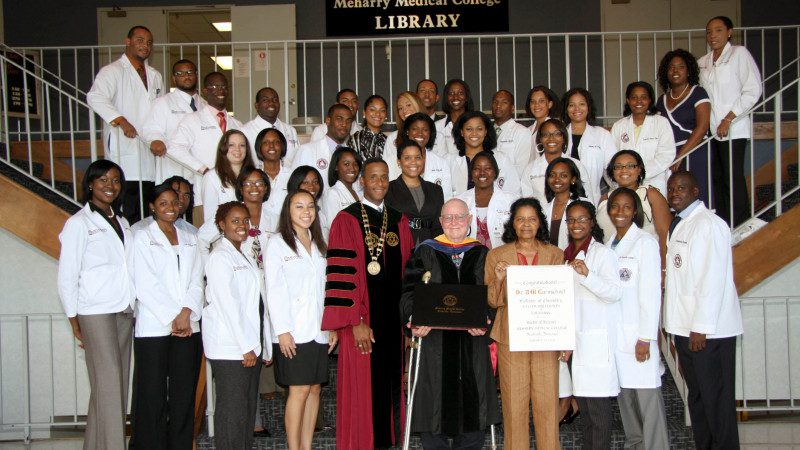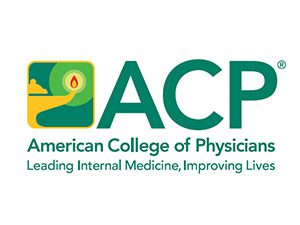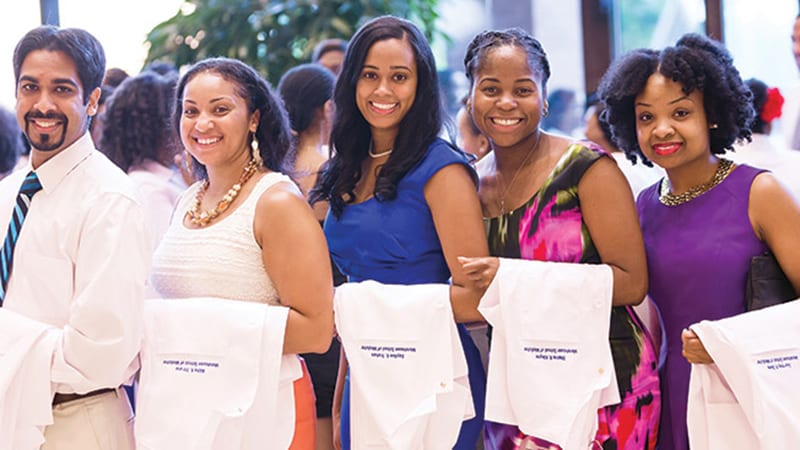Choose Pre-Med: The Path to a Becoming a Doctor

Diversity and representation matter in all professions, but when it comes to medicine, it can mean the difference between health and disease, and even life and death. It is a sobering fact that Black Americans fare significantly worse than their white counterparts when it comes to healthcare.
Continuing Racial Inequities in Healthcare
Many factors contribute to healthcare inequities for people of color. However, a major and well-documented one is that because of conscious or unconscious racial bias among medical providers, Black Americans consistently receive inferior treatment and experience worse health outcomes than their white counterparts. This is driven in part by the fact that healthcare is still dominated by white men, which means that medical care could become more equitable if there were more physicians of color in the medical industry.
A Dire Need for Black Physicians of All Genders and Identities
Yet as of 2021, 63.9% of active physicians were white; 20.6% were Asian, and only 5.7% were Black or African American, with other non-white races making up just 0.1%-6.9% of the field.
Clearly, there is an overwhelming need for doctors of color who understand the greater health risks that many Black Americans face, from social determinants due to systemic injustices (such as a lack of employer-provided health insurance, or residence in underinvested communities) to racial predispositions to disease. On the whole, African Americans are at a greater risk of heart disease, other cardiovascular diseases, stroke, diabetes, cancer, sickle cell anemia, asthma, and more compared to white Americans.
Black women incur even more health risks, including pregnancy-related complications, excess weight, and chronic stress. African Americans who fall into other marginalized demographics (including the LGBTQ+ and differently abled communities) experience additional acute health dangers. For example, LGBTQ+ people of color are at a heightened risk of violence, HIV/AIDs, and death compared to their cisgender heterosexual counterparts.
This highlights the need for more Black doctors of all genders, orientations, abilities, and experiences. If you’re a young African American interested in the field of healthcare, enrolling in the right HBCU can give you the social, financial, and academic support you need to help you get started on this path.
Careers That Save Lives and Promote Health Equity
Young African American pre-med students can help to save lives and vastly improve health outcomes for Americans of all races, identities, and needs while making a lucrative salary. In doing so, you’ll also be contributing to a better representation of Black doctors in the US, lighting the way for more future physicians of color. To do all that, you’ll need to pursue an undergraduate pre-medical degree that will prepare you for medical school. From there, you can choose to be a primary care physician, specialist, an emergency physician, or surgeon.
Pre-med studies are designed to prepare students to take the MCAT and ultimately enter medical school. Different schools approach pre-med coursework differently, and rather than having a designated pre-med major, many schools instead offer a pre-med track or concentration that students select in addition to their chosen major.
Some pre-med students choose majors in the sciences so that their core requirements have a lot of overlap with pre-med requirements; however, it is not unheard of for English or philosophy majors to complete all of the requirements for medical school in addition to their humanities coursework.
Importantly, each medical school has its own list of required pre-med coursework. For a definitive list of the classes you’ll need to take to get into your desired medical school, it’s best to look for that information on the individual school’s website. That being said, the majority of medical schools require that applicants have completed classes in the following subjects:
- Biology
- Biochemistry
- Chemistry (organic and inorganic)
- Physics
Careers in Medicine
Within the field of medicine, there are dozens of sub-fields. Depending on your interests and skills, if you choose to become a doctor, you could practice medicine in any of the following specialties:
- Primary care
- Family medicine
- Cardiology
- Dermatology
- Emergency medicine
- Surgery
- Internal medicine
- Obstetrics and gynecology
- Urology and nephrology
- Bariatrics / obesity
- Neurology
- Pediatrics
Practicing medicine isn’t the only career path open to those with an MD. Other possible career options include:
- Medical researcher
- Medical consultant
- Teacher
- Medical writing
- Physician’s assistant
Want to learn more about this possible career path and college major? Have questions about which UNCF colleges and universities offer pre-med studies? Looking for help with financing this degree?
Click Here So We Can Help You!
How to Prepare for Success
A strong background in science and math will be extremely helpful for students looking to pursue a pre-med education. In particular, biology is considered a cornerstone of early pre-med education.
However, many medical schools are also embracing the value that a cross-disciplinary education brings to the medical school curriculum. For example, practicing medicine requires strong interpersonal communication and problem-solving skills, both of which are often emphasized in liberal arts and humanities courses such as English, sociology, psychology and others.
Bolstering your application with interdisciplinary coursework and extracurriculars shows that you are a versatile candidate, and makes your application that much more likely to stand out.

Xavier University of Louisiana
UNCF Schools to Consider
A number of UNCF-member schools offer pre-med programs, including:
- Morehouse College
- Xavier University of Louisiana
- Spelman College
- Tuskegee University
- Morehouse College
- Johnson C. Smith University
- Claflin University
- Oakwood University
- Bethune-Cookman University
 Professional Organizations
Professional Organizations
These organizations and others can provide information about and related to the practice of medicine:
- American Medical Association (AMA)
- American College of Physicians (ACP)
- American Academy of Pediatrics (AAP)
- American College of Emergency Physicians (ACEP)
- Society of Hospital Medicine (SHM)
- Black Healthcare & Medical Association (BHMA)
- National Medical Association (NMA)
- Association of Black Cardiologists (ABC)
Note: Many medical subspecialties also have their own professional societies that you can further join and follow.
Scholarships Available
There’s no better way to start on your path to a successful career in medicine than with a solid financial foundation. Fortunately, many scholarships are available through UNCF, including some specifically for pre-med majors. Keep an eye on the UNCF website for current scholarship opportunities and announcements.
Search for specific scholarships and view those that are currently accepting applications here! Students should also check with each college or university to see if there are additional scholarships available to study medicine.
As you explore your options, be sure to use our guide to applying for scholarships and grants. You can also receive guidance by submitting a major interest form if you are interested in a career in medicine. Submit the form on our website to get started. And follow us on UNCF social media channels to receive notifications about our scholarships and member HBCUs. Reach out today!
You can also show your support for students pursuing careers and furthering equity in the medical field by making a contribution to UNCF member schools. Education is the greatest tool we have in creating a just and equitable society in which economic mobility is available to all. Help us achieve this future by donating today!
